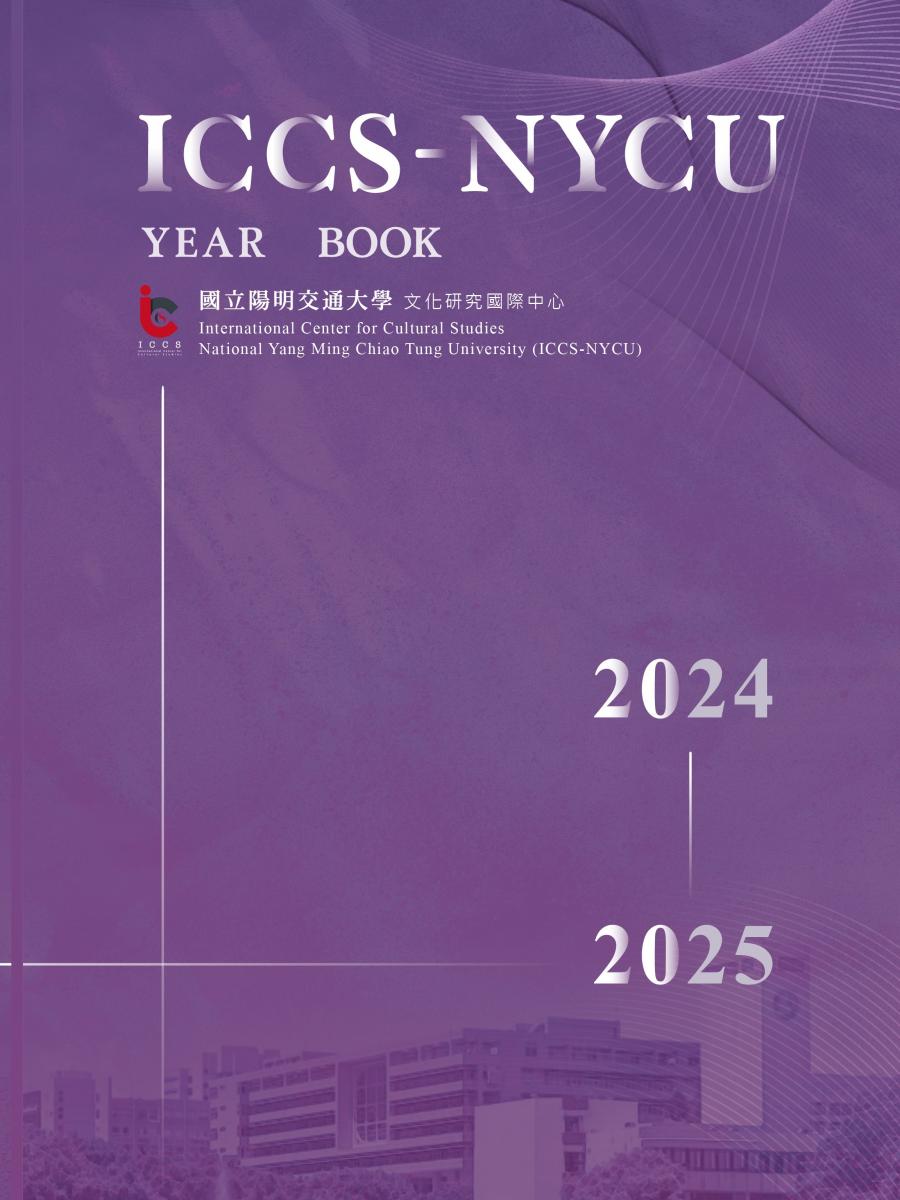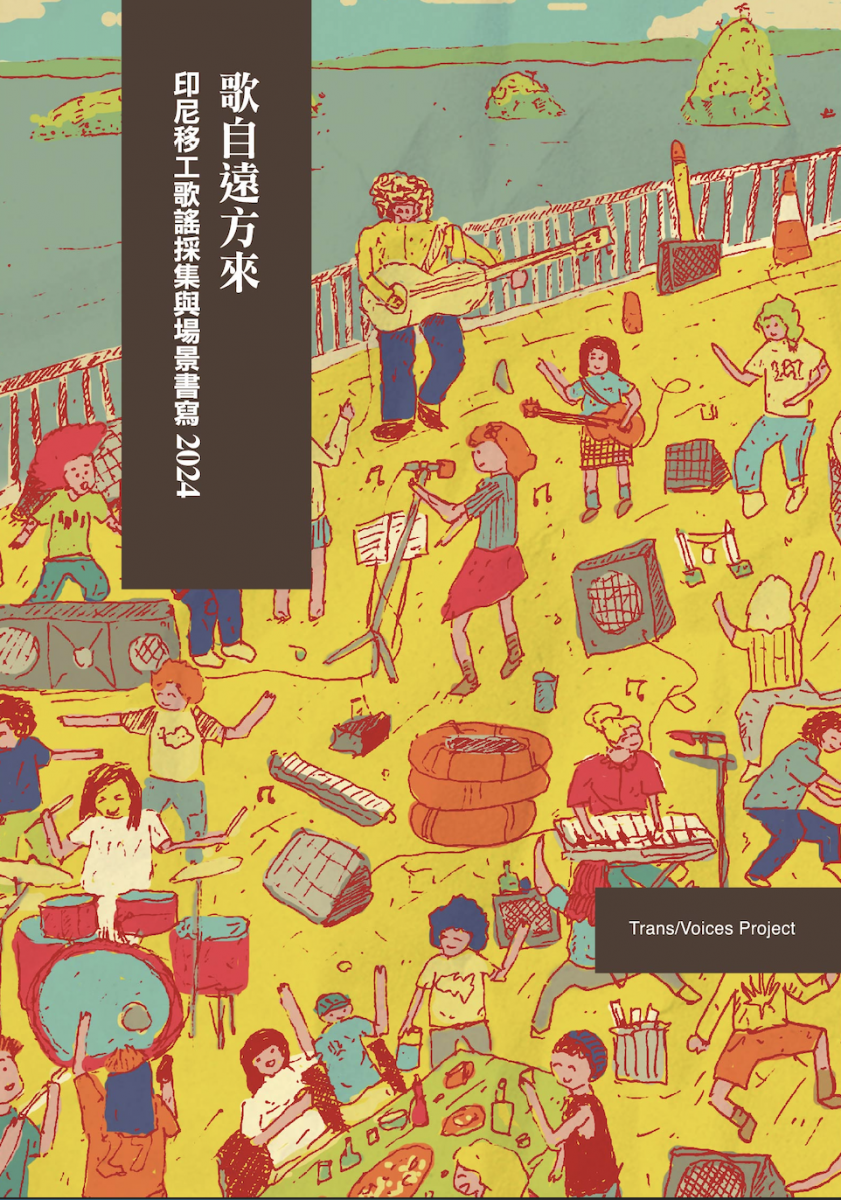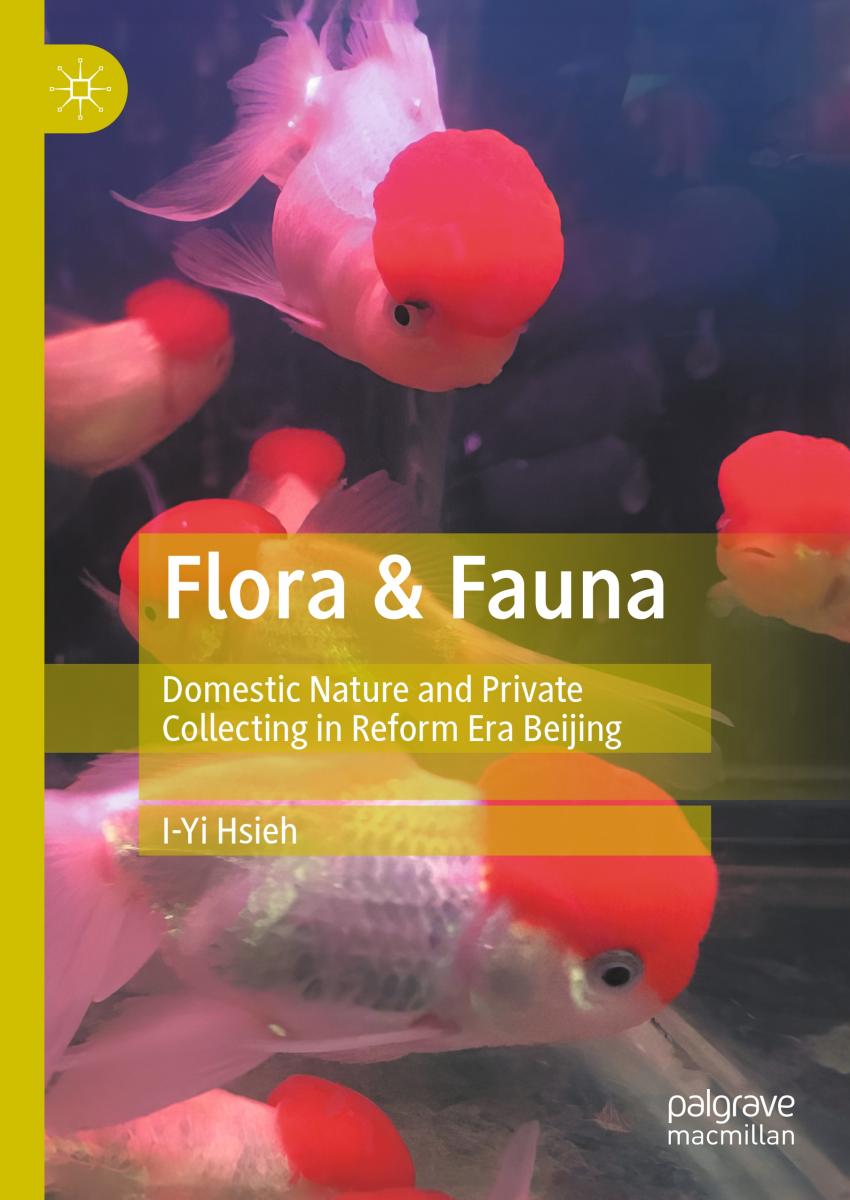

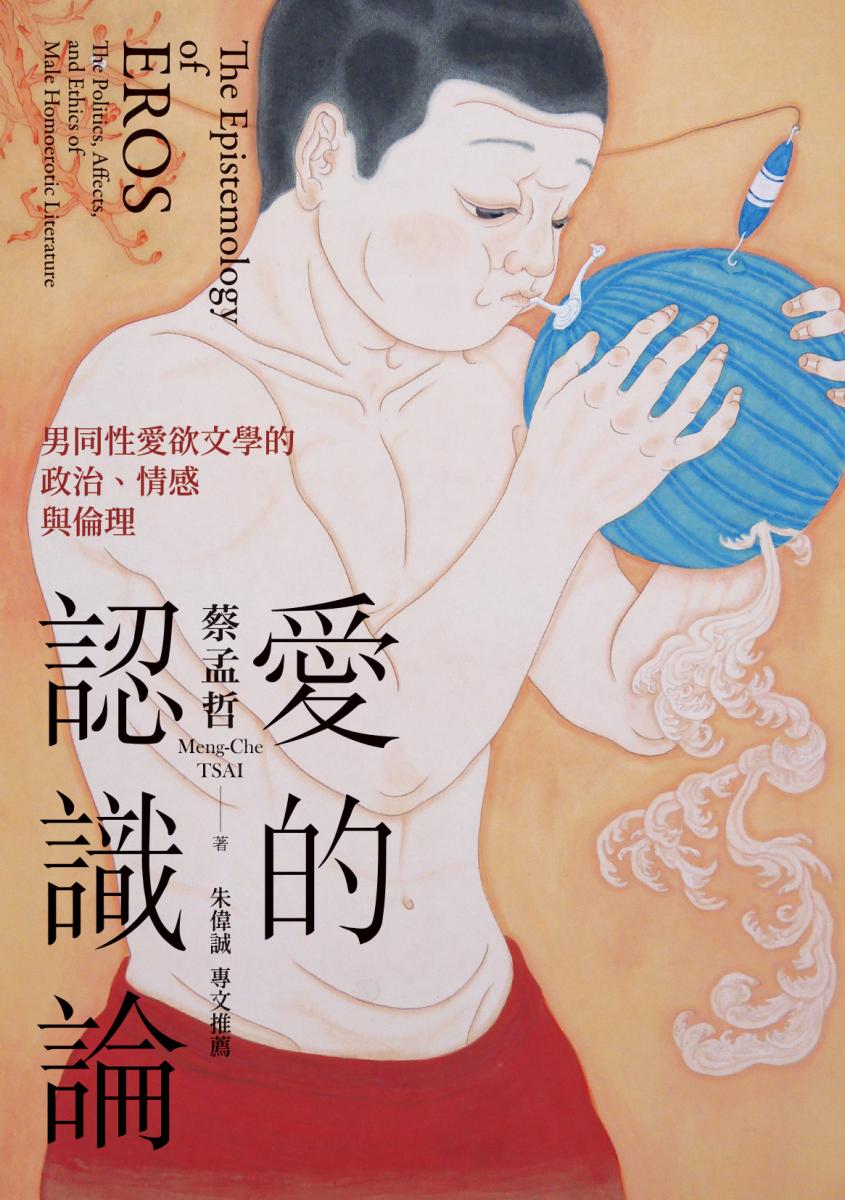
The Epistemology of Eros: The Politics, Affects, and Ethics of Male Homoerotic Literature
Publication Date|2023-04-01
Authors|Meng-Che TSAI
Press|陽明交大出版社
ISBN|9789865470630
Synopsis
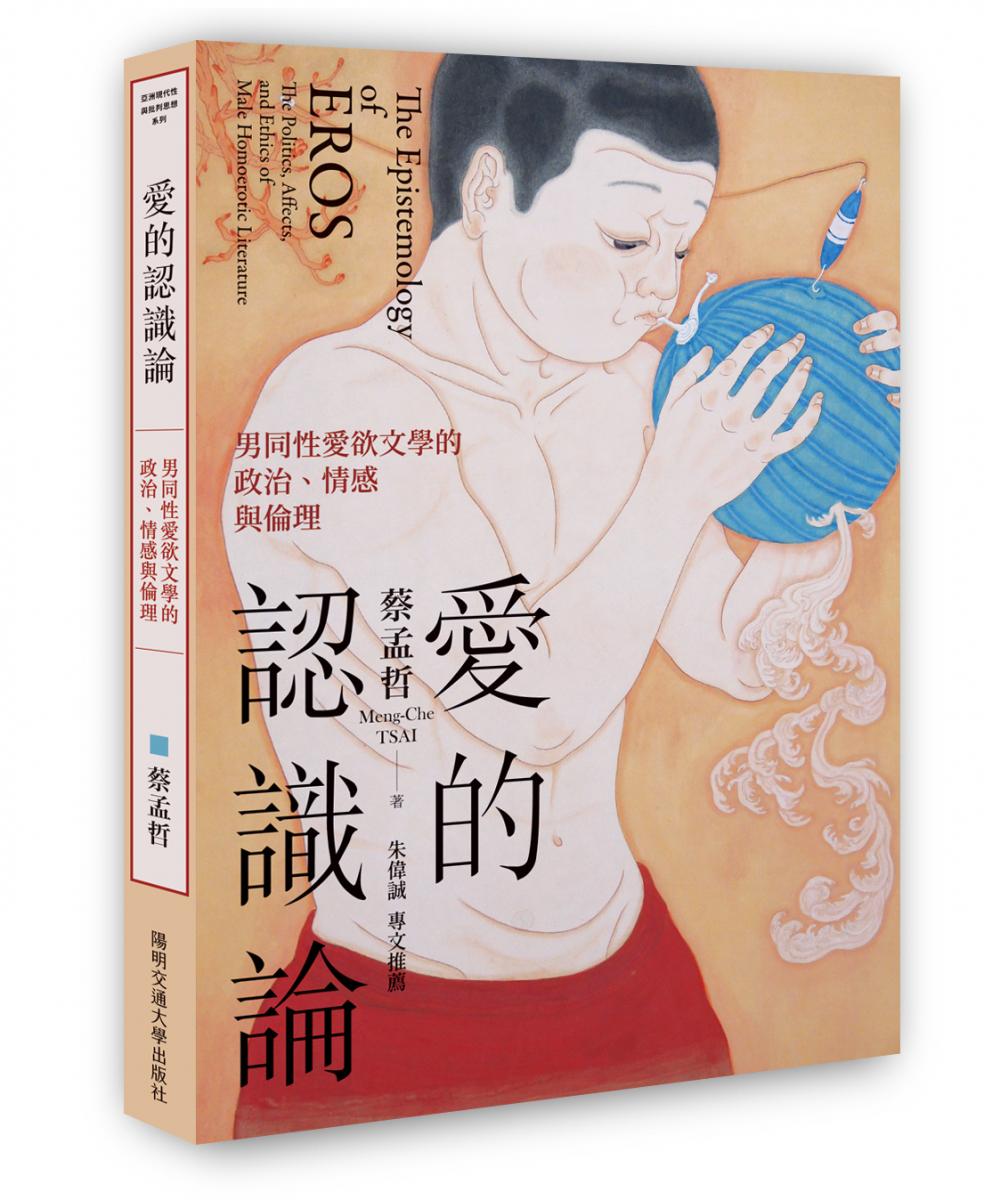
▍Book Descriptions
Obsession(癖), Voyeurism(窺), Eros(愛)
The shift of the homosexual epistemologies and historical relations
By conceptualizing “the epistemology of eros,” a notion that connotes multiple tempo-spatial significance, this book examines the three modes of homosexual epistemology--the obsession-pathologized, the voyeurism-moralized, and the eros-related--and traces the shift of their historical relations, to address homosexual subjects’ stigmas, life situations, intimacies, and approaches of living together.
The Utopia of Eros and Stigma
The “association” that penetrated by power and used to maintain social stability
This book investigates the living conditions of homosexual subjects in different historical contexts by analyzing the Chinese male homoerotic novels about the imaginations and dialectics of sex/intimacy and marriage-family, which not only related to and constituted the various life situations of contemporary homosexuality, but also affected and shaped the specific social systems and historical events of the transformation of homosexual epistemology. This book argues for an alternative epistemology of homosexuality to understand, consider, and feel queers’ happiness and sadness. In doing so, we could discover the conflicts and troubles embedded in queer’s affect and life, the hope and imagination of queer’s happiness that intersect with the disastrous history and social conditions, so as to explore an ethical imagination that is constitutive of self-care, mutual help, and group survival.
▍Book Features
▍Recommendation
▍Review
“This book represents a significant contribution to the academic research in the related field. In a discipline where numerous previous works already exist, finding a new path is not an easy feat. However, as mentioned earlier, in this book, the concepts of selecting chapter themes with a clear outline and providing a close-up analysis of the text will make it easier for readers to understand the dazzling and bewildering scenes of the replacement of the paradigm of Chinese homosexuality in the past hundred years and the subsequent changes in the prevailing trends. Coupled with the author’s fluent writing style and sharp writing skill, this book may become the most interesting and accessible knowledge primer in related fields, or it is also unknown. I highly recommend it.” --Wei-Cheng, Raymond Chu (Associate Professor, Department of Foreign Languages and Literatures, National Taiwan University; the Chief Editor of Taiwan Tongzhi Fiction Anthology)
“The mystery of eros and its associated confusions are like the rain of flowers in the sky. How could we easily not to cause confusion, panic, and injuries? Not to mention the discrimination and indifference that homosexual love has always endured. This book focuses on the historical field of modern and contemporary male homoerotic desire, with a simple and grand target. However, the way to “understand” is long and difficult. The author gradually explores and describes the map of love and desire for himself and our contemporaries, focusing on family, marriage, disease, and drug addiction, and his gaze always points towards the utopia of eros.” -- Chun-Ying, Lin (Writer; the Winner of Golden Tripod Awards & Golden Taiwan Literature Awards)
“This book is a groundbreaking work of queer studies in recent years, particularly in its analysis on the socialist period of the Republic of China, which is unprecedented and highly innovative. Its analysis and reading of non-mainstream texts also offer an important critical voice for gender studies in Taiwan.” --Walter Hsu (Associate Professor, Department of Theatre Arts, National Sun Yat-Sen University)
“The Tongzhi movement is a cultural and social movement, and its most important source of energy and weapon is discourse. This book offers readers a more comprehensive view to deeply understand how the world constructs male homoerotic desire. It is an important and fascinating work for honing the power of discourse.” --Gofyy (Co-founder of Taiwan Tongzhi Hotline Association)
“This book is different from the mainstream appeal of “Love is the Best,” which does not distinguish between homo-and-heter sexuality and is not open to doubt. With the three focuses of “obsession,” “voyeurism,” and “eros,” it reveals the relationship between male homoerotic desire, national reform programs and utopian imaginations. Grounded in contemporary cultural conditions and in dialogue with previous research, this book makes a significant contribution to the study of Chinese male homoerotic writings.” --Chia-Hsien, Yang (Associate Professor, Department of Chinese Literature, National Tsing Hua University)
▍About the Author
Meng-Che TSAI. He had a PhD in Chinese Literature and MA in Sociology from National Tsing Hua University. He is now the executive editor of Router: A Journal of Cultural Studies. He used to be a research assistant professor of International Master’s Program in Inter-Asia Cultural Studies (National Yang-Ming & Chiao-Tung University), and an adjunct assistant professor of Department of Chinese Literatures, and Interdisciplinary Program of Humanities and Social Sciences (National Tsing Hua University). He co-teaches the podcast “The Reading of Homosexual Novels in Contemporary Chinese Literature” (Mirror Voice Podcast, 2022) with Chia-Hsien, Yang. He is also a co-editor of “Lingering Disabilities: A Reader for the 21st Century” (Shen-Lou Press, 2014) and “The Anthology of Heather Love” (Shenlou Press, 2012) with Jen-Peng, Liu, Yu-Wen Sung, and Sheng-Xun Zheng. His research interests are: sex/gender and queer studies, modern and contemporary literature studies, cultural studies and critical theory.
▍Table of Contents
Foreword: The Ups and Downs of a Century of Homosexual Paradigms (by Wei-cheng, Raymond Chu)
Introduction: The Historical Relations of the Epistemology of Homosexuality
“Eros” and the Epistemology of Homosexuality
Historical Periodization and the Context
Conclusion
Chapter 1: The Epistemology of Eros: Discourses on Sex/Gender in the Socialist Perspective during the Minguo Era
“Obsession” and “Voyeurism”
Youth Hu Qiuyuan’s Homoerotic Datong Imagination
Anarchists’ Association through Breaking Eros
Conclusion
Chapter 2: The Utopia of Eros: The Dialectics of Homoerotic Desire and Enlightenment/Power during the Minguo Era
Yu Dafu’s Autobiography of Homoerotic Desire
Guo Moruo’s Sexual/Emotional Enlightenment
The Pedagogy of Eros
Conclusion
Chapter 3: The Reincarnation of Eros: The Interweaving of Homoerotic Desire and the Imaginary of Marriage/Family in Postwar Taiwan
The Imaginary of Marriage in The Man Who Escaped from Marriage
The Ethic of Family in Qiu Qingbao’s Works
The Reincarnation of Eros in Male Same-sex Marriage
Conclusion
Chapter 4: The Association of Eros: The Reflections of Ethic of AIDS and Sex-Drug Parties after the Millennium
Mourning AIDS in Notes of a Desolate Man
Governing AIDS in “What HIV Taught Me”
The Ethic of Association in Love Me, While We’re Still Alive
Conclusion
Conclusion: Navigating the Utopia of Eros and Stigma
Acknowledgments
近期出版 Recent Publication
